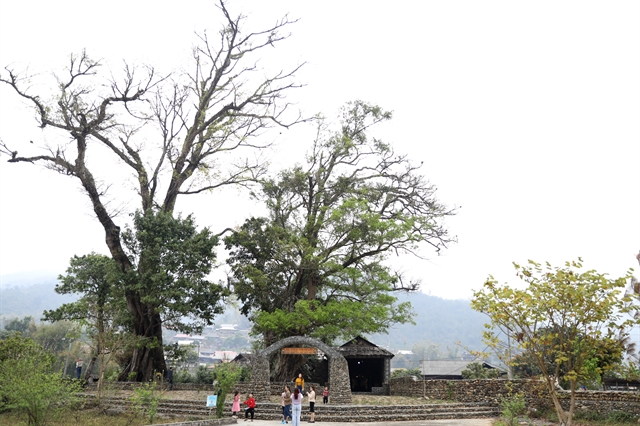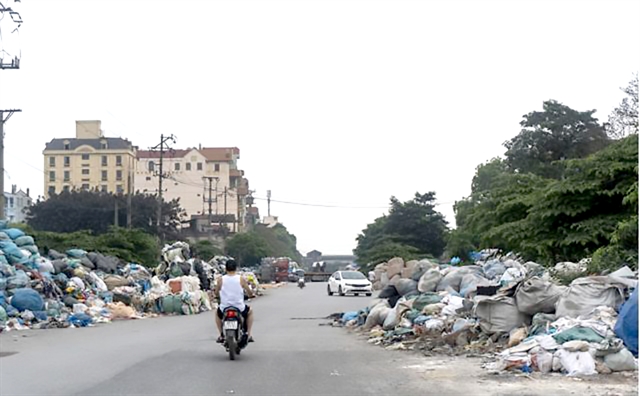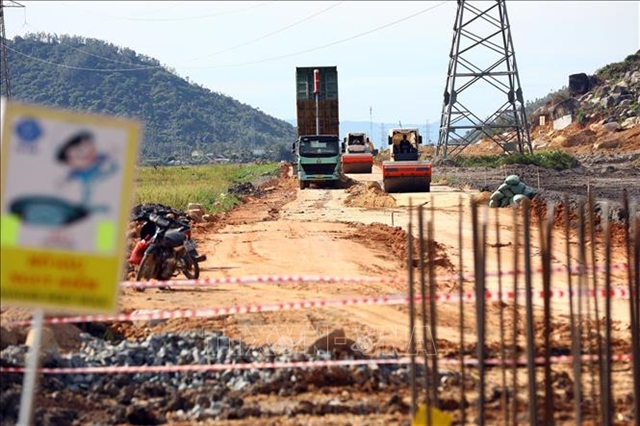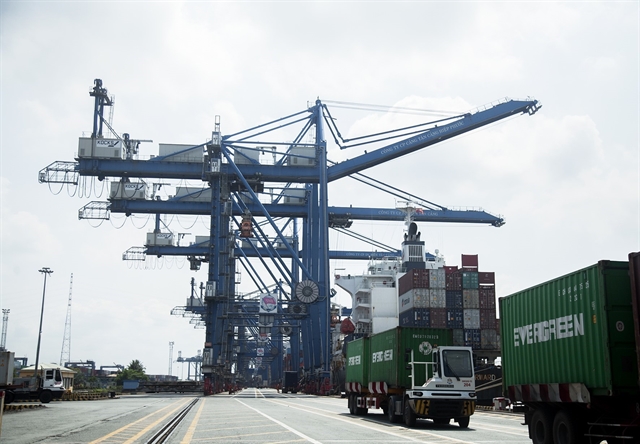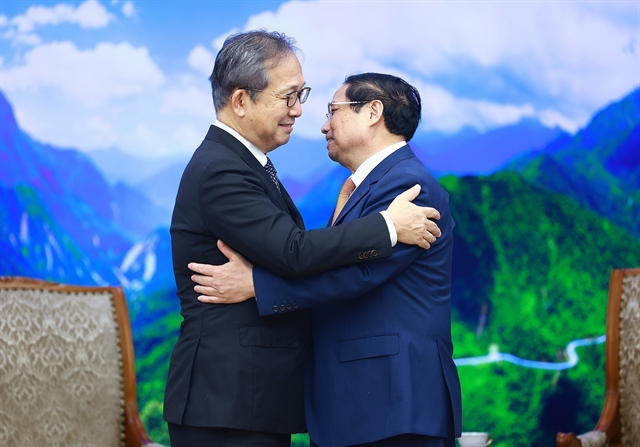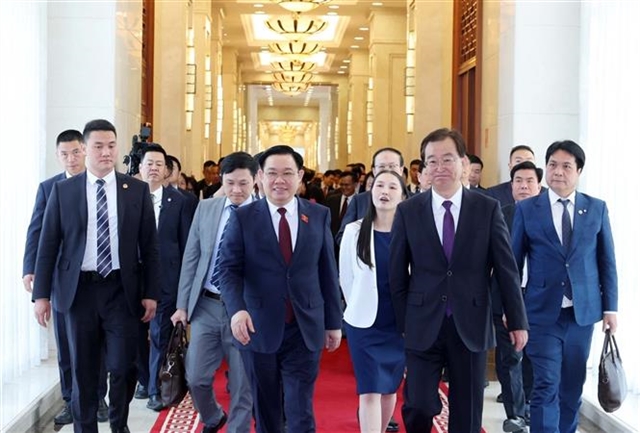

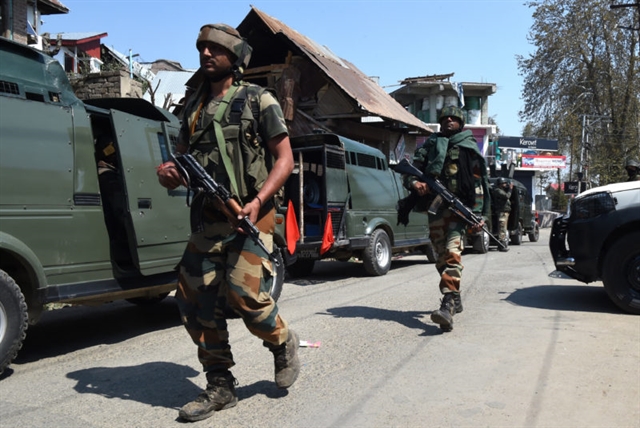
|
| Indian army soldiers patrol during a gun-battle between Indian government forces and militants in Kachidoora, south of Srinagar. — AFP Photo |
by Ishan Joshi
Why Now?
Narendra Modi has just won a thumping second term with a full majority in Parliament so the BJP has not only the electoral will but was also under massive pressure from its support base to come through on its longstanding poll promise on ending the special status enjoyed by the erstwhile state of Jammu and Kashmir.
The party is now headed by PM Modi and No.2 Home (Internal Security) Minister Amit Shah who make no apologies for their ideological commitment to the ‘One India’ policy.
The BJP’s rise as a political force from the fringes of Indian polity to its zenith has been premised on its constant criticism of previous regimes’ allegedly ‘effete’ response to the threat of terrorism, ignoring development issues and promoting a differential citizenship model in India.
These promises meant that the party felt it had to follow through on revoking the special status enjoyed in Kashmir.
What’s the Strategy?
Ladakh with its primarily Buddhist population was given a separate Union Territory (UT) status to isolate it from Jammu and Kashmir and focus on development.
By forming another UT comprising both the Jammu region with its majority Hindu population and the Kashmir Valley with a majority Muslim population, the strategy is to headline the fact that there is no religion-based separation as India is a secular state.
The move will also attempt to isolate local politicians, long accused of corruption, and give India’s central government more control on local affairs.
Intelligence and political assessments are that a majority of residents of Jammu and Kashmir are susceptible to a ‘winning over hearts-and-minds’ policy with a strong emphasis on a secular development agenda.
The calculation is that the section of secessionist, Islamist and pro-Pakistan elements who take to violence or encourage it will be made to feel the full force of the law.
This approach, according to the government, will make it easier to manage domestic issues and then deal with external actors, including Pakistan and to a lesser extent China, on a stronger footing.
What’s The Outcome?
As far as it can be gauged, the government has received huge popular support for its Kashmir gambit including from many parties in the Opposition.
There is a general sense in the country of enough is enough; that 72 years after Independence it is time the same laws apply to all Indian citizens and regions regardless of religion, gender, caste or creed.
Plus, development/equality for all and appeasement of none – a position strongly articulated by Modi and reflected in his massive mandate – seems to sum up the mood of the nation.
There is a strong backlash too – the Congress and smaller regional parties who term themselves ‘secular’ in contrast with the ‘communal’ BJP have strongly opposed this ‘tinkering’ with the Constitution and ‘special provisions’ for Muslim-majority Jammu and Kashmir.
Minority community voters and liberals will consolidate against BJP as a result but these will not be seen as major political considerations for the BJP.
Internationally, the pushback is coming from Pakistan and left/liberal establishments but the Indian government seems confident of managing the situation given major powers including Russia, China, US and Japan have administrations sympathetic to the BJP’s ‘nation first’ rhetoric.
What Is The Risk For India?
The big one is the threat of more militant attacks, even something spectacular. Also, critics of the government decision argue that it will be perfect recruitment fodder for extremists leading the Kashmir insurgency.
The domestic risk for India is that the move could lead to further Hindu-Muslim polarisation depending on how both the Government/Opposition and community leaders handle the rhetoric. As it is, India is already pretty divided as a nation.
Internationally, Islamic countries and some in the European Union will be wary of the move but any sort of sanctions seem a far cry as of now.
What It Means For Pakistan
It’s complicated. But the Indian move does give Islamabad a talking point to paint the Modi Administration as ‘India’s Hindu majoritarian government’ and the opportunity to raise an ‘Islam in danger’ cry which will have some traction.
But in strategic terms it signals to the Pakistani military-industrial complex that New Delhi is ‘putting its own house in order’ and will then be ready to engage with external actors. — ANN

